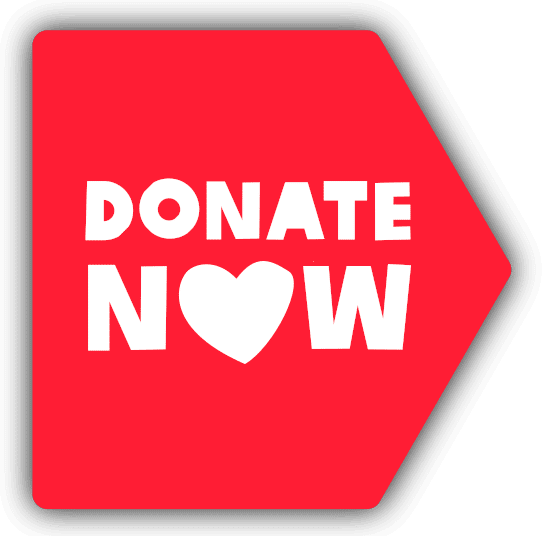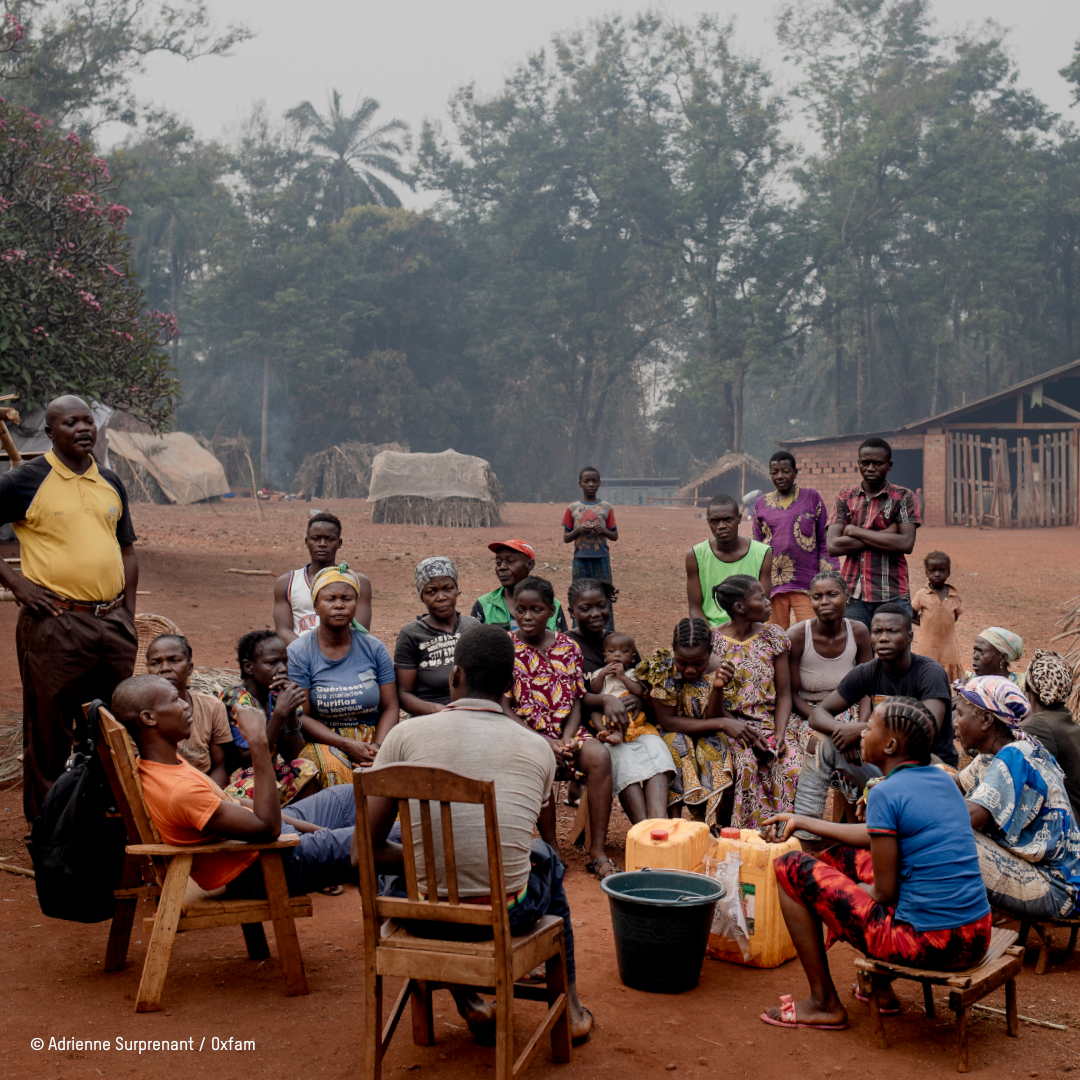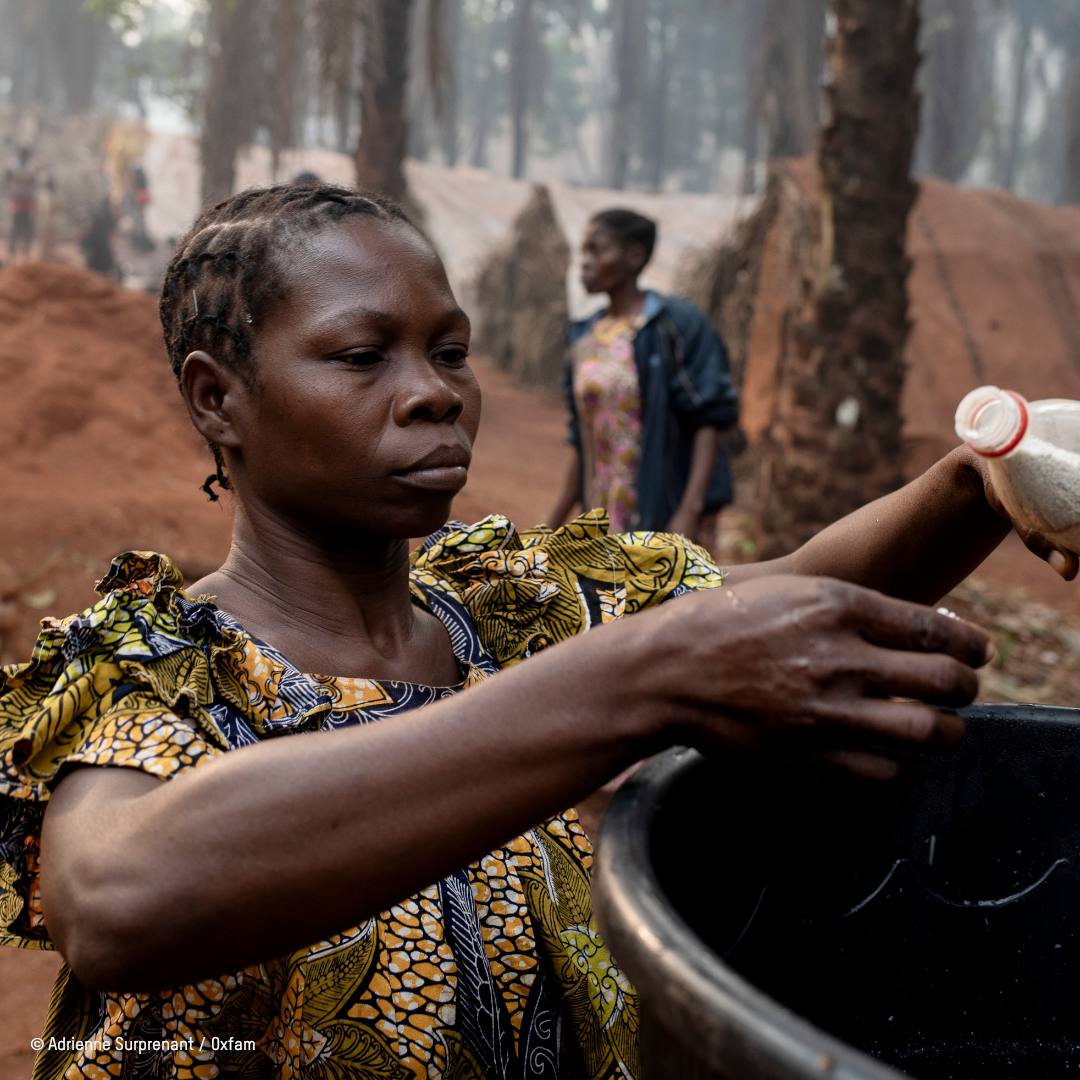CENTRAL AFRICA: Marcelline is a leader
in her community
Marcelline fetches water from the Cesacoba camp for displaced persons in the Central African Republic. Photo: Adrienne Surprenant / Oxfam (March 2021)
The night everything changed for Marcelline and others…
Marcelline was 36 when she lived with her four children and husband in Bangassou, Central African Republic. She cultivated the fields and sold her produce at the market. One evening, her life was turned upside down.
“I didn’t understand the shots, I didn’t know where they were coming from. I was scared, I heard too many gunshots, I was tormented.”
Panicked and confused, she was separated from her husband and children. She would reunite with them long hours later, weeping with relief. That evening, they slept on the cement floor of the Cesacoba church. Hundreds of other displaced people shared these difficult conditions for almost a month. Some fell ill with diarrhea, malaria or flu.
.
Like all the other women staying at Cesacoba, Marcelline had to walk two kilometers to access a small water source, surrounded by trees and “full of bacteria”, before Oxfam took over the water supply at the site by building a tank and water pump system.
Marcelline now takes charge of a committee
Marcelline, determined to make a difference, has joined the site’s hygiene committee. She plays an active role in cleaning the facilities.
“Nowadays, we have toilets, showers and drinking water. It’s made our lives a lot easier. And now that we have all this, I’ve joined the hygiene committee. Because it’s our responsibility – those of us who stay on site – to clean the latrines. And it feels good to take on that responsibility.”
When we spoke to Marcelline, the water systems could supply 30,000 liters a day, 50 toilets had been installed and 40 showers were available to people residing in the camp.
Marcelline’s work is not limited to cleaning the facilities. She acts as a community leader and conducts door-to-door cleanliness promotion sessions on site.
With your donations, you support projects like the one Marcelline took part in, aimed at improving hygiene conditions in precarious environments.
A leader in her community
Marcelline, determined to make a difference, has joined the site’s hygiene committee. She plays an active role in cleaning the facilities.
“Nowadays, we have toilets, showers and drinking water. It’s made our lives a lot easier. And now that we have all this, I’ve joined the hygiene committee. Because it’s our responsibility – those of us who stay on site – to clean the latrines. And it feels good to take on that responsibility.”
When we spoke to Marcelline, the water systems could supply 30,000 liters a day, 50 toilets had been installed and 40 showers were available to people residing in the camp.
Marcelline’s work is not limited to cleaning the facilities. She acts as a community leader and conducts door-to-door cleanliness promotion sessions on the site.
With your donations, you support projects like the one Marceline took part in, aimed at improving hygiene conditions in precarious environments.
Donate now
To go further
Discovering countries with humanitarian needs
See our sustainable projects worldwide
Donate to support our projects



